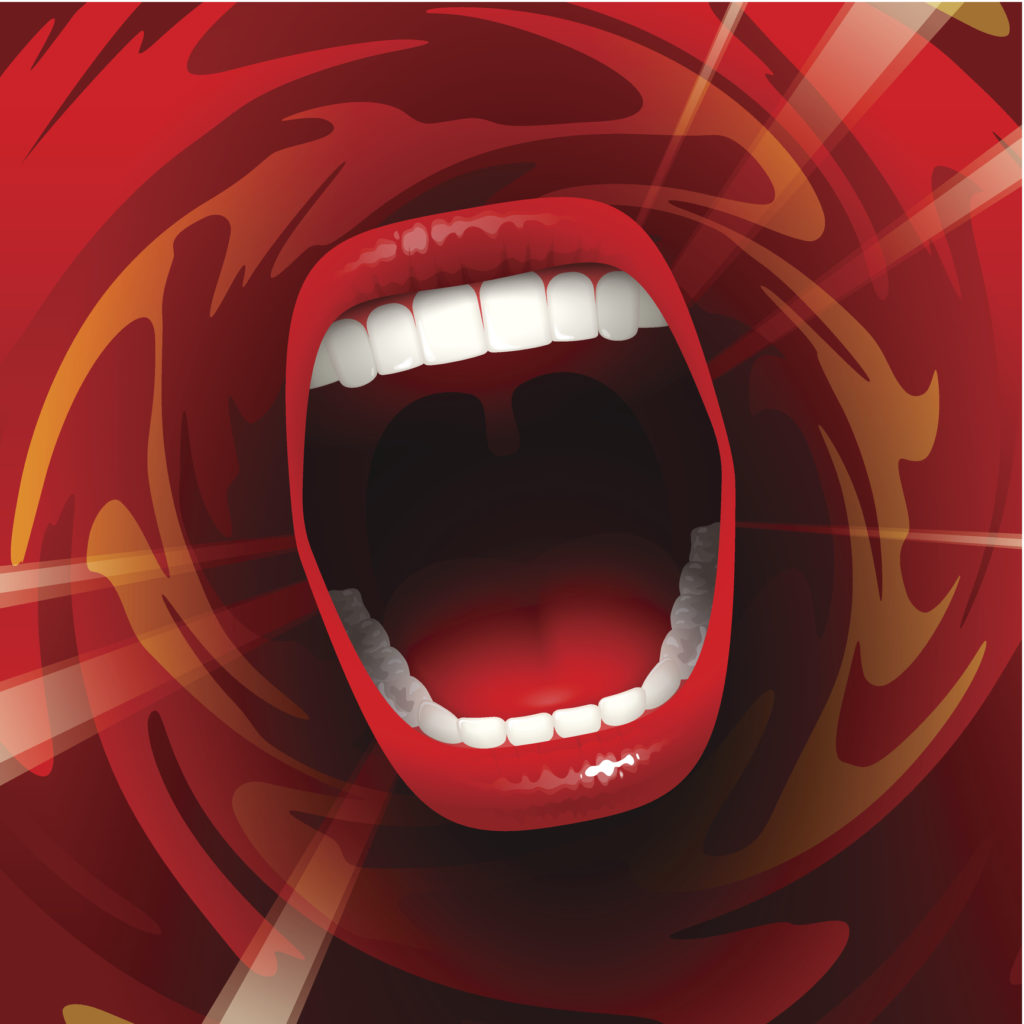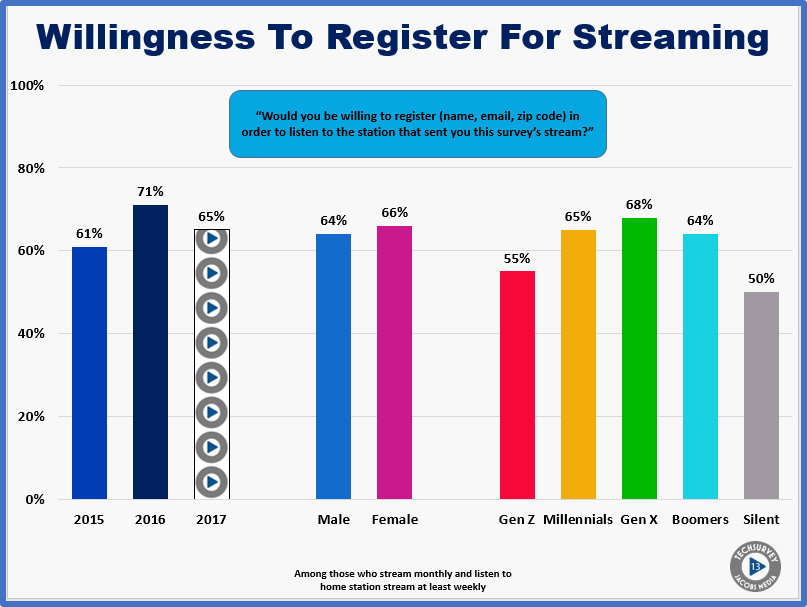 Marketers are beginning to reexamine the credibility of their messaging in what many are calling a “post truth” world. Who can you believe? Is your data and your personal information safe? What’s real and what’s a scam? Consumers are scrutinizing everything, putting pressure on brand credibility.
Marketers are beginning to reexamine the credibility of their messaging in what many are calling a “post truth” world. Who can you believe? Is your data and your personal information safe? What’s real and what’s a scam? Consumers are scrutinizing everything, putting pressure on brand credibility.
Increasingly, we’re asking for more information from listeners, but how willing are they to share it with us? Even conducting basic audience surveys has become more arduous, as researchers (including Nielsen) will tell you.
Consumers don’t know what to believe, and the recent revelations that social media kingpins like Facebook and Twitter routinely run what’s become known as “fake news” ads makes the landscape even more dangerous. When people lose trust in advertising and marketing, how can brands grow and thrive?
The annual Edelman Trust Barometer which measures how consumers feel about institutions and brands shows an across-the-board decline. They report “trust is in crisis around the world.” And to prove that point, trust in non-government agencies, business, government, and media have all dropped from year to year in their survey.
In radio terms, we think we saw this skepticism (and fear) at work in this year’s Techsurvey13. We’ve been asking people who regularly stream radio stations whether they’d be willing to give us basic information (name, email address, zip) in order to access Internet audio.
We saw some solid growth in the first year, leading us to believe there was a basic trust level among radio fans toward their favorite stations. But this year, the numbers fell back, and we’ve postulated the drop-off may be due to the spate of fails, breaches, hacks, and scams, from Equifax to Wells Fargo.

In a world where every email comes with some level of peril, it becomes more challenging to win consumers over. That’s why more and more marketers are coming around to word of mouth – consumers providing their own ratings and analysis about the products and services they prefer – and reject.
Adweek reports that during Advertising Week, this was a major topic on a number of panels and sessions. One of the best observations came from Publicis Groupe’s chief growth officer, Rishad Tobaccowala, who noted rands make progress when they emphasize marketing and product innovation rather than merely engaging in traditional advertising. And he added this:
“Make a better product or service, and people will talk about that. In many cases you may want to cut your advertising budget to improve your product or service.”
In radio terms, that’s a suggestion to consider a brand’s marketing activities: billboards, direct mail, contesting, and the other promotional activities stations routinely engage in. At what point do brands benefit from product investment and innovation rather than “buying books” using temporary steroids like prize giveaways?
This isn’t to say that traditional marketing campaigns don’t work. But there is something to be said for rethinking the way brands interface with their audiences. And what it takes for consumers to enthusiastically talk about a station and better yet, recommend it to others.
Because you can win a Nielsen quarterly with advertising and giveaways, but your brand won’t build any bona fide level of trust, much less word of mouth.
At the same conference, American Express EVP global advertising and brand management, Elizabeth Rutledge, noted her company’s best efforts come from consumers spreading the word about its offerings and services:
“It’s the best way for us to show our brand authentically through other customers who have stories to share about the experience they’ve had. That’s better than any ad in terms of a reference point.”
We’ve talked about the Net Promoter Score system as a way for stations to measure the power of their own word-of-mouth recommendations. It’s an indicator of the degree to which your listeners will recommend you to a friend or colleague. Yet, few include this key question in their perceptual studies or their internal research. Know that we ask it and track it every year in our Techsurveys because it’s the best indicator of word-of-mouth potential. Over time, it tells an important story about a brand’s relationship with its audience.
 In an era where consumers may not always believe in brands and institutions, they will rely more and more on each other for recommendations and support. When the promotional budget runs out, it’s may be the most important asset a brand has to maintain and grow audience.
In an era where consumers may not always believe in brands and institutions, they will rely more and more on each other for recommendations and support. When the promotional budget runs out, it’s may be the most important asset a brand has to maintain and grow audience.
The power of word of mouth.
- Radio + Thanksgiving = Gratitude - November 27, 2024
- Is It Quittin’ Time For SiriusXM? - November 26, 2024
- Radio, It Oughta Be A Crime - November 25, 2024




Fred, Please allow this take away: “Make a better product or service, and people will talk about that. In many cases you may want to cut your advertising budget to improve your product or service.” Thank you, Clark
Brilliant, right? Thanks, Clark.
Whether from a sales or a programming perspective, what will generate more word of mouth; and is not only offering something unique, but something also compelling to the highest degree to the greatest number of people.
What determines such? That which generates the greatest emotional intensity from listeners and advertisers.
What do our listeners and advertisers live and die for (excuse the dangling preposition), and how do you make it relevant and pertinent to what your station is doing?
Lead with the biggest dog in each hunt. There are occasions that you’ll have something that encompasses both parties’ highest-ranking levels of emotional intensity.
You ask good questions, Andy, and I’m thinking that not every station can easily answer them. You have to know the content and personalities that ring that bell. It’s the emotion that’s the secret sauce. Thanks for commenting.
For those that forgot let me offer a history lesson in radio vs the listener. Album rock promised their audience a less filtered experience between the radio and the audience. Top 40 played a 3 minute version of light my fire and album rock played the long version as intended by the artist. Album rock walked the talk. The point is…. don’t bullshit the listener. The most direct way for an organic person to person recommendation is be great. I am probably being old fashion here but I don’t see a smarter way to success.
Actually, the marketing execs from Publicis Groupe & AmEx said pretty much the same thing. Instinctively, those early album rock stations had their collective hearts in the right place. Thanks, Dan.
This article makes me think of the various “real people–not actors” (a phrase that makes me giggle every time I see it as I wonder how that must make actors feel) TV commercials.
In essence, those commercials are seeking to bring “word of mouth” to the masses via national campaigns by using people who look, sound and talk like, well, real people.
Judging from what certainly seems like an increase in such ads, I can only assume it must work.
Those commercials DO work, and probably subliminally smooth the way for people to talk about Chevys. Thanks for the comment, Dave.